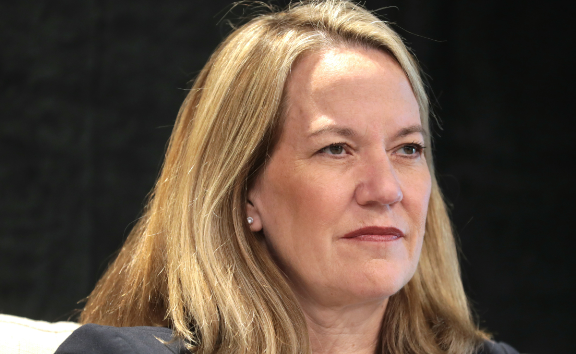
by Corinne Murdock | Nov 24, 2023 | News
By Corinne Murdock |
Mohave County officials backed down from a proposed policy to hand count all future ballots after Attorney General Kris Mayes threatened criminal charges.
The Mohave County Board of Supervisors convened on Monday to discuss whether they would hand-count all ballots for the 2024 election and beyond; the board declined the policy in a divided vote. Mayes congratulated the board for heeding her threat.
“I am greatly relieved and commend the Mohave County Board of Supervisors for their decision not to authorize a hand count of all ballots for the 2024 election, upholding Arizona law,” said Mayes. “The Board’s decision to adhere to state-mandated procedures for ballot counting avoids potential legal complications and reinforces public trust in the integrity of our elections.”
During the meeting, State Sen. Majority Leader Sonny Borrelli (R-LD30) said that the county could count on an amicus brief from the House and Senate should the county vote for hand counting ballots and face criminal prosecution.
Supervisor Hildy Angius clarified that hand counting wasn’t as “easy-peasy” as sitting down and physically tabulating the ballot. Angius agreed that problems continue to plague Arizona’s elections, namely calling out mail-in ballots.
Supervisor Ron Gould challenged the notion that no election problems could exist in their county because the law doesn’t allow supervisors access to the voting logs. As a challenge to the strength of voting machines, Gould said that when he served as a state senator in 2005, voting machines in the Republican state representative primary were found to be severely defunct — out of calibration by as much as 18 percent — after a recount flipped the race by 250 votes.
“My biggest concern here today is that folks are losing faith in elections; they don’t think their vote counts,” said Gould. “So much for the infallibility of voting machines.”
Borrelli suggested that Mohave County count ballots through hand counts at the precinct level, then through tabulators at the county level prior to certification. However, Deputy County Attorney Ryan Esplin said that couldn’t be done in light of Mayes’ letter and their own legal analysis. Esplin advised that the board err on the side of caution by adhering strictly to what statute allowed. The county attorney noted that ARS § 16-443 and 16-445 necessarily implied that hand counts could be used, but that 16-622 and 16-602 undermined that argument. Both of those latter statutes were cited by Mayes in her Sunday letter.
“It has to be spelled out in statute, or necessarily implied: that’s the legal standard. There is no statute that specifically authorizes a hand count, and that’s why we say we do not believe you can do a hand count, because there’s no statute that authorizes it,” said Esplin. “Take the safe route: use the machines, because we know those are legal, we know the law, the law says very clear, ‘This is what we do.’”
Supervisors Gould and Angius voted for hand counting ballots; Supervisors Buster Johnson, Jean Bishop, and Travis Lingenfelter voted against.
Mayes sent a letter to the Mohave County supervisors on Sunday that she would file criminal charges against them should they vote to hand count all ballots for the 2024 election and beyond. The attorney general said that the hand count method was not only too slow and less accurate, it also wasn’t permitted by statute. Mayes cited A.R.S. § 16-449, 16-468, 16-602, 16-621, and 16-622.
Mayes also expressed concern that the board was influenced by “bad-faith actors” aiming to sow doubt and undermine Arizona elections.
In a viral response to Mayes’ statement on Monday, conservative commentator Rogan O’Handley criticized Mayes as “an illegitimate attorney general” that benefited from election fraud.
“Yeah forcing ballots into the same machines that shut down on election day in Maricopa is one hell of a way to ‘reinforce public trust,’” said O’Handley.
Corinne Murdock is a reporter for AZ Free News. Follow her latest on Twitter, or email tips to corinne@azfreenews.com.

by Daniel Stefanski | Nov 22, 2023 | Education, News
By Daniel Stefanski |
More dollars are coming to Arizona state schools.
Last week, Republican Superintendent of Public Instruction Tom Horne announced that his office would be issuing a $10 million grant “for public schools to purchase art supplies.”
The Art Consumable Grant, according to the Arizona Department of Education’s release, will deliver funds to “successful district and charter school applicants…to purchase arts consumables such as paints, brushes, sheet music, dance props, theatrical costumes, and much more.” Selected schools will receive $1,000 for every full-time arts teacher.
In a statement that accompanied the announcement, Superintendent Horne said, “I am a passionate supporter of arts education; it is an essential part of any successful school. There are studies that show learning how to play stringed instruments helps students do better in math, so there are both aesthetic and academic benefits to arts education. I am pleased to encourage schools to apply for these funds to support arts education throughout Arizona.”
The Department encouraged Arizona district and charter schools to apply for the Art Consumable Grant. Schools have until December 31, 2023 to submit their applications for these funds.
Daniel Stefanski is a reporter for AZ Free News. You can send him news tips using this link.

by Corinne Murdock | Nov 22, 2023 | News
By Corinne Murdock |
Rep. Andy Biggs (R-AZ-05) is advocating to pass a ban on kill switches in personal vehicles.
Kill switches allow for the remote shutdown of a vehicle. There are variants of the technology all dedicated to the preventing or limiting vehicle operation: fuel line shutoff valves, battery disconnect switches, remote car battery switches, ignition wire switches, and fuse box switches.
In an interview with Newsmax over the weekend, Biggs said that the promise of safety against drunk driving under a kill switch belied the alleged motive of greater governmental control.
“Think about this: there’s already black boxes in your cars. We know that abuse of FISA — the Foreign Intelligence Surveillance Act — against American citizens, we’ve seen the weaponization of government,” said Biggs. “And, ostensibly, this is to stop drunk drivers, supposedly. But this car’s going to be able to monitor the alcohol content of a driver, but they can kill it [the car] at any time because it’s a passive surveillance technique.”
Biggs speculated that kill switches in cars could be appropriated for other purposes, such as government-declared emergencies like the ones enacted during the COVID-19 pandemic.
“So, let’s say you have another COVID outbreak. Let’s say they determine that you haven’t been vaccinated,” said Biggs. “Can they then go ahead and kill switch your car? It’s a control thing.”
Biggs’ remarks followed continued controversy over the kill switch provision in President Joe Biden’s 2021 Infrastructure Investment and Jobs Act (IIJA). Section 24220, “Advanced Impaired Driving Technology,” requires that drunk and impaired driving prevention technology become standard in all new vehicles. The section defines that technology as that which can passively monitor the driver’s performance to determine impairment and then prevent or limit any driving of the vehicle. Additionally, the technology would be able to passively detect whether the blood alcohol content of a driver, and prevent or limit any driving of the vehicle if the driver’s blood alcohol content is higher than the legal limit.
Passive detection includes technology that measures blood alcohol content while the driver breathes or touches certain parts of the car.
For breath-based passive detection, sensors are typically installed in the driver’s side door or in the steering column, and infrared light sweeps the breath for alcohol molecules. Companies maintain that their passive detection technologies are capable of distinguishing between driver and passenger breath.
For touch-based passive detection, tissue spectroscopy sensors on areas like the ignition button shine infrared light to measure blood alcohol content.
Biden’s bill directed the National Highway Traffic Safety Administration to develop policy fulfilling the directives of Section 24220 within three years. After that, automakers would have up to three years to adhere to the new standards. Under that timeline, kill switches could be standard in new vehicles by 2026.
On Monday, Biggs and 32 other members of Congress — including Rep. Paul Gosar (R-AZ-09) — signed onto a letter to Transportation Secretary Pete Buttigieg expressing concern about the potential surveillance abuses from the forthcoming technology.
“The potential to misuse this technology to surveil American citizens without a warrant poses a threat to constitutionally protected rights of freedom of association, as well as the protection from unreasonable search and seizure,” stated the letter.
The letter asked Buttigieg to explain the difference between impaired and drunk driving, how kill switch technology would detect a drunk driver in a moving vehicle, how the agency-mandated technology will work and examples of any present existence of it, what passive monitoring under the agency directives will entail, whether cameras would be used and if the video would be stored, how the technology would differentiate between defensive driving and drunk driving, any safeguards to ensure protections for those with certain disabilities, the safety implications and possibility of secondary accidents, for how long a car would be disabled and the procedure for handling stranded drivers, the impact of kill switches on road congestion, any law enforcement notification procedures, and who bears liability for accidents caused by disabled vehicles.
Corinne Murdock is a reporter for AZ Free News. Follow her latest on Twitter, or email tips to corinne@azfreenews.com.

by Corinne Murdock | Nov 21, 2023 | Education, News
By Corinne Murdock |
Parents have expressed concerns after Gilbert Public Schools (GPS) teachers performed a same-sex “wedding” in front of all their kindergarteners.
Val Vista Lakes Elementary School reportedly posted images of the event on their Facebook page, and GPS liked them. It appears the photos have since been deleted.
Teachers Makayla Krinsky, Suzanne Lunt, and Tina Selles, along with Principal Patrick Miller, were pictured participating in the event. The “wedding” is a popular lesson plan among educators to teach kindergarteners about how the letter “u” always follows the letter “q” in English spelling. Traditionally, the lesson plan focuses on the union of a bride and groom; however, the GPS teachers opted to have two women play the roles.
Miller walked Lunt, wearing a white dress and veil with the letter “Q,” down an “aisle” of white paper. Krinsky served as an “officiant” wearing the letter “O,” with Selles wearing a black top and pants with the letter “U” awaiting Lunt. In the background, the traditional “Bridal Chorus” song played on a screen.
Lunt was a Republican candidate for Arizona House District 14 last year; she lost in the primary. She received endorsements from Jenn Daniels, former Gilbert Mayor; Greg Tilque, president of Gilbert Sister Cities; Julie Spillsbury, Mesa City council member; Joan Kruger, Larry Morrison, and Linda Abbott, former Gilbert Town council members; Reed Carr, former Gilbert School Board president; Bob Worsely, former state senator; Save Our Schools Arizona; Stand for Children Arizona; and the Arizona Nurses Association.
Krinsky, Lunt, and Selles all graduated from ASU.
As shared by Not in Our Schools, a parent posted their concerns in a private Facebook page for GPS parents and community members.
“How would you go about addressing it with both the sNot chool and school board. I can accept the fact that sometimes the letters “Q” and “U” go together or are ‘married’ in some words,” said the parent. “However, I feel like this is completely unnecessary. Honestly believe that marriage should not be spoken about in school at all, let alone should they be pushing the valve off same sex marriage.”
In a separate post, Arizona Women of Action (AWOA) issued a similar concern that a mock same-sex wedding could be problematic for young, impressionable minds.
“This @GPS_District “mock same sex wedding” may have been benign in design, but parents must address these kinds of unacceptable issues at each turn,” said AWOA. “They are confusing and damaging to our children. The more their minds are stressed with these experiences, the more problems will accrue.”
AWOA encouraged community members to contact the school board, as well as the Arizona Department of Education Empower Hotline about the classroom event.
Corinne Murdock is a reporter for AZ Free News. Follow her latest on Twitter, or email tips to corinne@azfreenews.com.

by Corinne Murdock | Nov 21, 2023 | News
By Corinne Murdock |
A Tucson restaurant owner has sued the Hobbs administration over its newer mandate that only cage-free eggs be produced or sold in the state.
Last week, the Goldwater Institute and Pacific Legal Foundation sued the Arizona Department of Agriculture (AZDA) on behalf of Grant Krueger, owner of Union Public House, Reforma Modern Mexican Mezcal + Tequila, and Proof Artisanal Pizza & Pasta.
In a press release, counsel and Krueger asserted that AZDA had surpassed their constitutional authority by bypassing the legislature; they dubbed AZDA the “egg bureaucrats.”
“Unaccountable, unelected bureaucrats shouldn’t be able to arbitrarily impose these kinds of harmful mandates on small business owners like me,” said Krueger. “If the government can do this with eggs, what else can they do it with?”
Krueger estimated that his restaurants purchase over 2,000 eggs weekly; he employs about 225 people.
Per his lawsuit, lawmakers directed egg producers to petition the AZDA for a rule on requiring cage-free housing for egg-laying hens, as the COVID-19 pandemic had disrupted law making procedures at the time. AZDA published the contested rule in April 2022, under then-Gov. Doug Ducey and then-AZDA Director Mark Killian. The rule began to be enforced on Jan. 1 of this year.
“Neither Arizona’s statutes governing executive branch rulemaking nor the Arizona Constitution permit AZDA to promulgate rules pursuant to such a standardless grant of authority,” read the lawsuit.
AZDA claimed authority for rulemaking under A.R.S. § 3-107(A)(1) and A.R.S. §3-710(J). The legal organizations countered in their lawsuit that the two statutes’ general authorization of rulemaking authority didn’t articulate the specific authority to enact a cage-free rule. Further, they argued that the Arizona Constitution didn’t allow for the delegation of legislative authority to an executive branch agency.
“The appropriate housing arrangement for egg-laying hens in Arizona and egglaying hens producing eggs for sale in Arizona is a major policy question that must be decided by the legislature,” read the lawsuit.
Per the lawsuit, AZDA had passed the rule to circumvent the effort of a similar ballot initiative, which the egg producers found objectionable due to the proposed timeline being too long.
The lawsuit warned that the new law will cause a significant increase in egg prices for both business owners and consumers: up to $66 million. For consumers, that would come to an additional 39 cents per dozen.
Per AZDA data, cage-free housing of egg-laying hens would increase egg production costs by up to 41 percent for labor inputs.
The Arizona Farm Bureau also stands in opposition to the sweeping cage-free egg mandate.
Corinne Murdock is a reporter for AZ Free News. Follow her latest on Twitter, or email tips to corinne@azfreenews.com.

by Daniel Stefanski | Nov 20, 2023 | News
By Daniel Stefanski |
The engines are starting for the 2024 Arizona legislative session.
On Wednesday, the first bill for the upcoming session was filed by Democrat State Senator Priya Sundareshan, who introduced a proposal to “restore the authorization for the Arizona School for the Deaf and Blind for 10 years.”
Senator Sundareshan’s introduction came on the first day that 2024 bills could be pre-filed. The lawmaker announced that all of her Senate Democrat colleagues cosponsored the legislation, which is SB 1001.
Both Sundareshan and one of her colleagues, Senator Mitzi Epstein, couldn’t resist taking a political shot across the aisle over the disagreements on the future of this state school. Sundareshan accused Republicans of “cruelly” cutting authorization to four years and “jeopardizing needed services for AZ children.” Epstein charged Republicans with attempting to “end” the ASDB.
During the most-recent legislative session, reauthorization of the ASDB proved to be a political hot topic between Democrats and Republicans. Legislation to continue the state’s authorization of this school, which was introduced by Republican State Representative Beverly Pingerelli, originally set the number of years at eight. Amendments in the Senate changed the yearly continuation figure from eight to two to four. Some Republicans argued that more legislative oversight was necessary for ASDB, supporting their efforts to shorten the length of authorization.
While most Democrat legislators went along with the changes when it came to their votes, their rhetoric told a different story. The Senate Democrats’ “X” account blistered these efforts to reduce the number of years of reauthorization for ASDB, asserting that “Republicans are performing a type of prejudicial bias that we cannot let go unchecked,” and that “discrimination against the disabled should never go unchallenged.” Governor Hobbs, who signed HB 2456 to continue authorization of this school for four years, also joined in with the attacks, stating, “the ASDB community was treated with a lack of respect and was not given equal access to participate in the legislative process.” The Democrat governor called on the Legislature to send her a bill in 2024 that continued ASDB for eight years.
Republicans disagreed with Democrats’ characterization of their attempt to protect taxpayer interests when it came to reauthorizing ASDB. Senator Jake Hoffman, one of the principals in pushing for more oversight and accountability of ASDB, told AZ Free News that his party was “committed to providing the best education possible to every child, including the deaf and blind, and allowing for greater oversight furthers that mission.” Before the bill was signed into law, the Arizona Senate Republican Conference posted, “Senate Republicans are fighting to ensure students and families of the Arizona State Schools for the Deaf and Blind receive the best education possible.”
The Second Regular Session of the 56th Arizona State Legislature will commence on January 8, 2024, in what promises to be another unpredictable year in a divided government in the Grand Canyon State.
Daniel Stefanski is a reporter for AZ Free News. You can send him news tips using this link.






